Are parking fines a revenue center for the city of Bloomington?
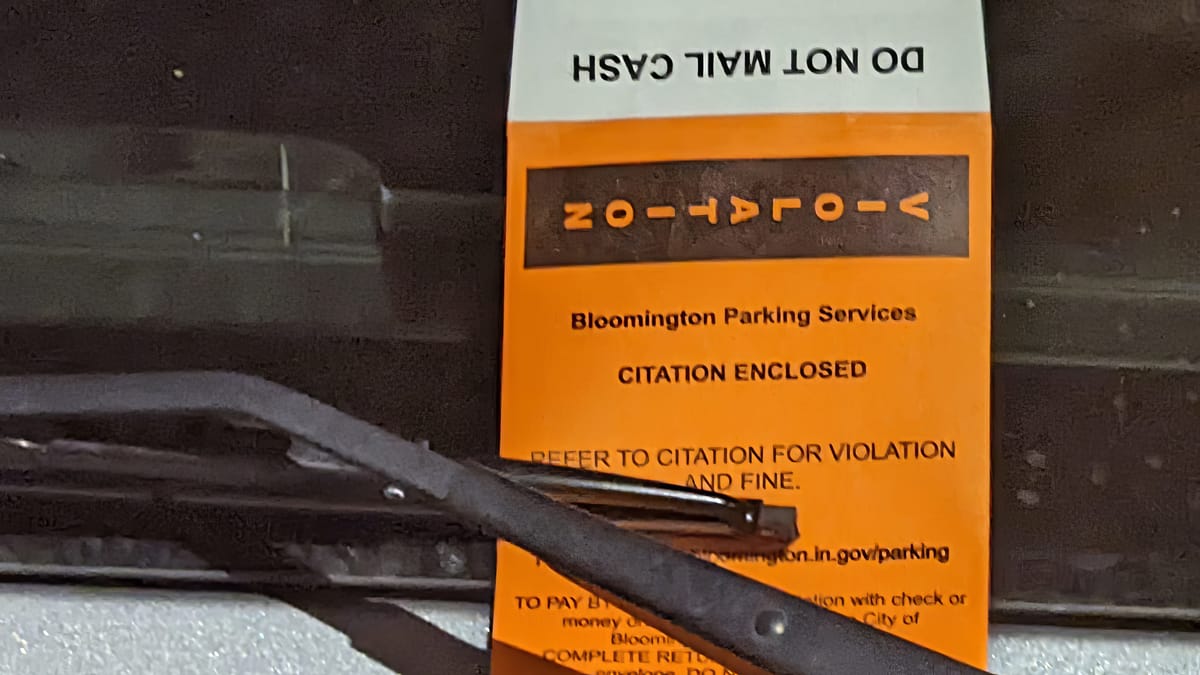
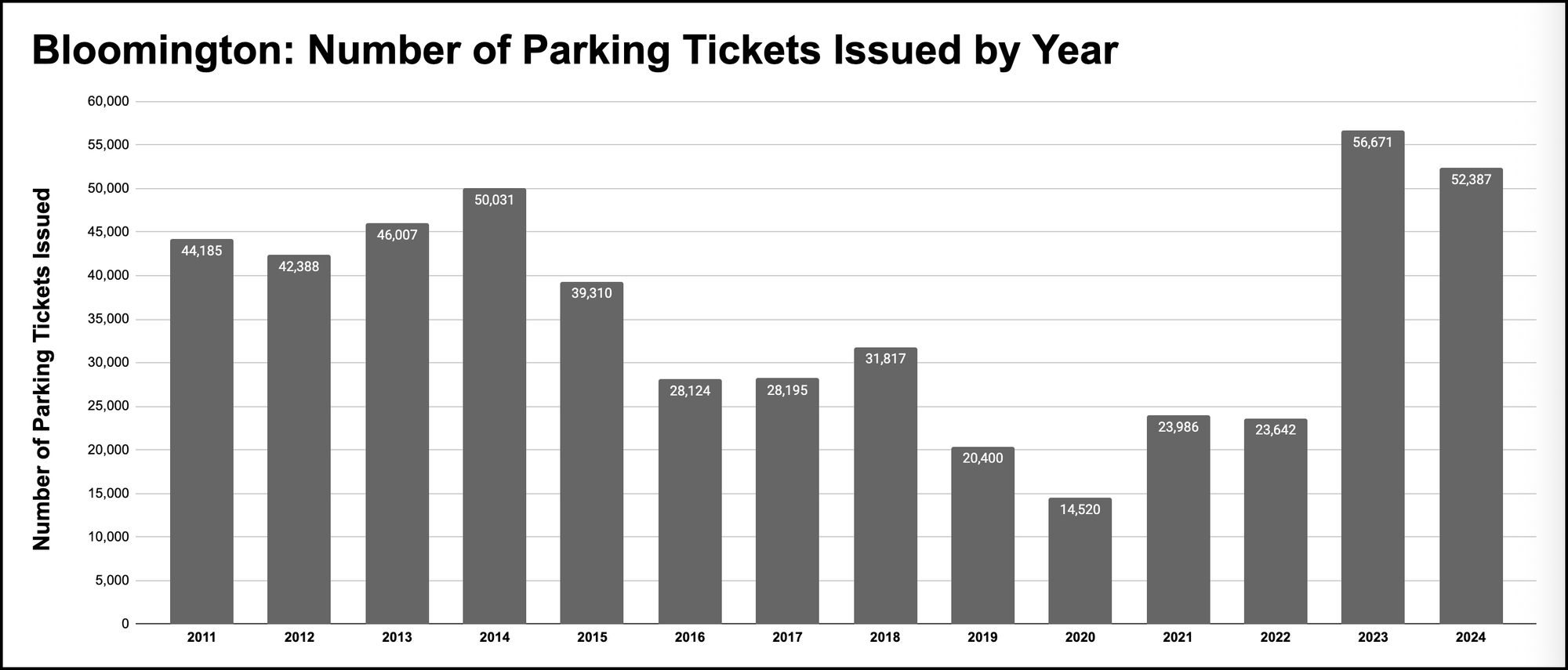
A news release from the city of Bloomington in the first week of May announced a parking survey that's open through May 27.
The release also includes a statement that describes how parking fines are a source of important revenue for the city of Bloomington, which helps pay for "critical city services."
It's possible that there's money left over from parking fines, after covering the costs of enforcement, to pay for other city services. But it's not clear how big that amount is.
Here's how the news release puts it:
While frequently overlooked, parking contributes meaningfully to the City's financial stability and supports a wide range of public functions. In 2024, parking citations generated more than $1.61 million in revenue for the City of Bloomington, compared to $1.73 million in 2023. These funds are directed into the City's General Fund, where they help support critical public services, delivery and general municipal government operations. Parking enforcement not only ensures parking turnover and accessibility but also contributes to the City's ability to maintain operations without relying solely on additional tax revenue.
But when The B Square checked the city's online financial information to confirm the $1.61 million in revenue from parking fines in 2024 and $1.71 million for 2023, there did not appear to be a plausible line corresponding to those figures.
There is a revenue line for those two years that is on the same order of magnitude as the two numbers in the news release. It's labeled "Other Violations." But the difference of around a half million dollars is way more than a rounding error: $1.09 million in 2023 (compared to $1.73 million in the news release) and $1.2 million in 2024 (compared to $1.61 million in the news release.)
A question emailed by The B Square to the city communications director and city controller got an answer, saying the numbers in the news release were wrong, and gave the correct figures as
2023: $1,090,038.28
2024: $1,156,136.77
Those are the numbers from the "Other Violations" revenue line to the General Fund in the city's online financial information.
The city of Bloomington confirmed that those figures reflect gross revenue from parking fines, not the net revenue. To calculate how much money from parking fines is actually available to pay for other critical city services would require subtracting at least the compensation for parking enforcement officers—among other expenses, like the capital cost of the half dozen parking enforcement vehicles, and the materials cost for their fuel.
In the 2025 approved budget there are 12 parking enforcement officers and an enforcement supervisor.
Based on the information in the city's online financial system, the amounts in personnel costs that were paid out of the parking meter fund in 2023 and 2024 were $834,193 and $878,959, respectively. But it's possible that not all personnel costs for enforcement are paid out of the parking meter fund. Likewise, it's possible that some personnel costs in the parking meter fund are not used for enforcement.
Factoring into the mix for analyzing how much net revenue is available from parking fines is the absolute potential revenue—if every fine were actually paid. The figures in the news release for parking fine revenue look like they might have been computed by taking the number of parking tickets issued in each year, then multiplying by $30, which is the basic cost of a Bloomington expired meter parking ticket, if it's paid within 14 days. After that the cost doubles to $60.
| Year | Tickets | x $30 |
|---|---|---|
| 2023 | 56,671 | $1,700,130 |
| 2024 | 53,378 | $1,601,340 |
The actual revenue from parking fines could be expected to be less than would be generated if all the issued tickets were paid. That's because around 15% of tickets are appealed—based on data maintained by the city clerk's office. It's the elected city clerk in Bloomington whose office handles appeals.
Of the tickets that are appealed, more than half are dismissed. But that's not enough to account for the roughly half million dollar difference between the amount that would get generated if all the parking tickets were paid, and those that don't get paid due to appeals.
One possible place to look for the discrepancy is in a revenue line that's also for "Other Violations"—not in the General Fund, but rather in the Alternative Transportation Fund (ATF). In the "Other Violations" line for the ATF, the amounts for 2023 and 2024 are $244,423 and $208,665, respectively. Those totals could reflect parking violations in the neighborhood parking permit zones. The revenue from those permit zones is supposed to go into the ATF.
The B Square has requested that the city administration either provide a detailed breakdown of accounting for net revenue from parking enforcement for the last five years, or ask that the consultant that has been hired for the current parking study, incorporate the analysis in its scope of work. The city's contract with Walker Consultants is for $65,000.
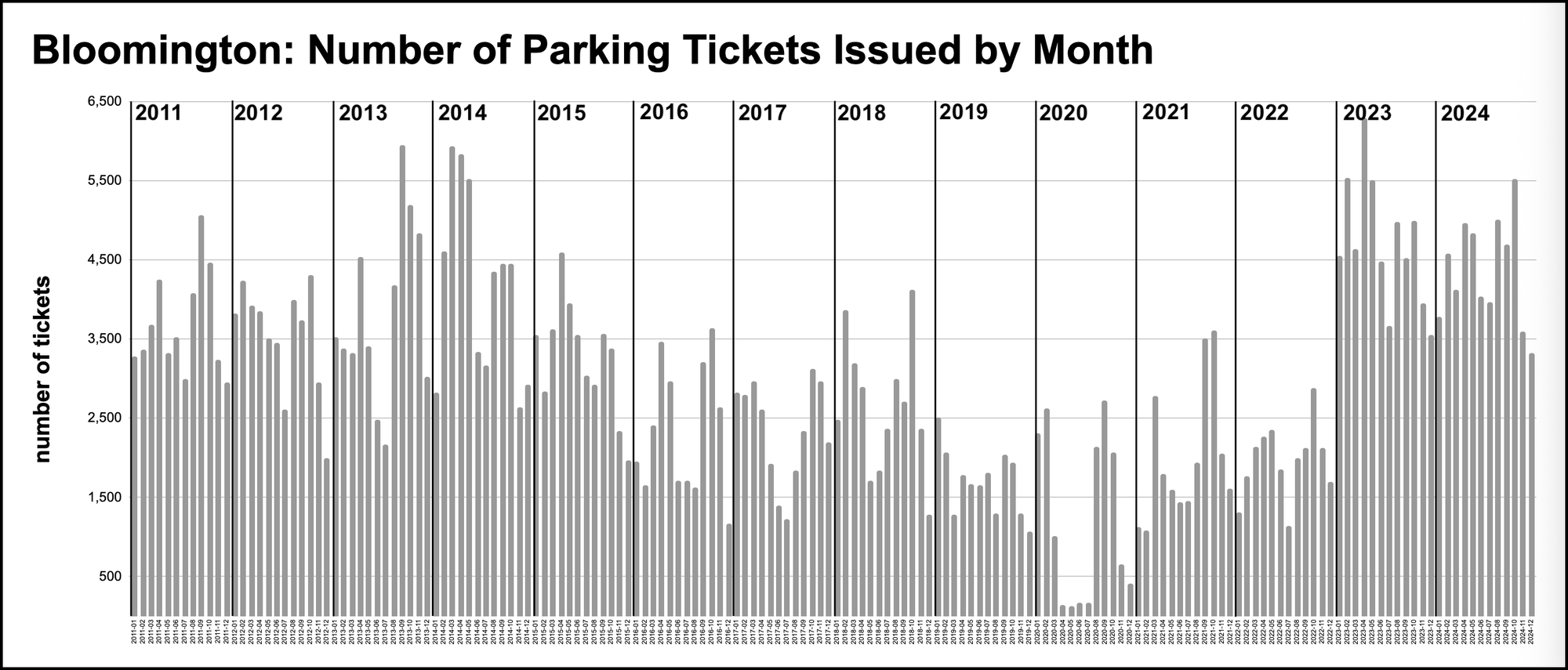
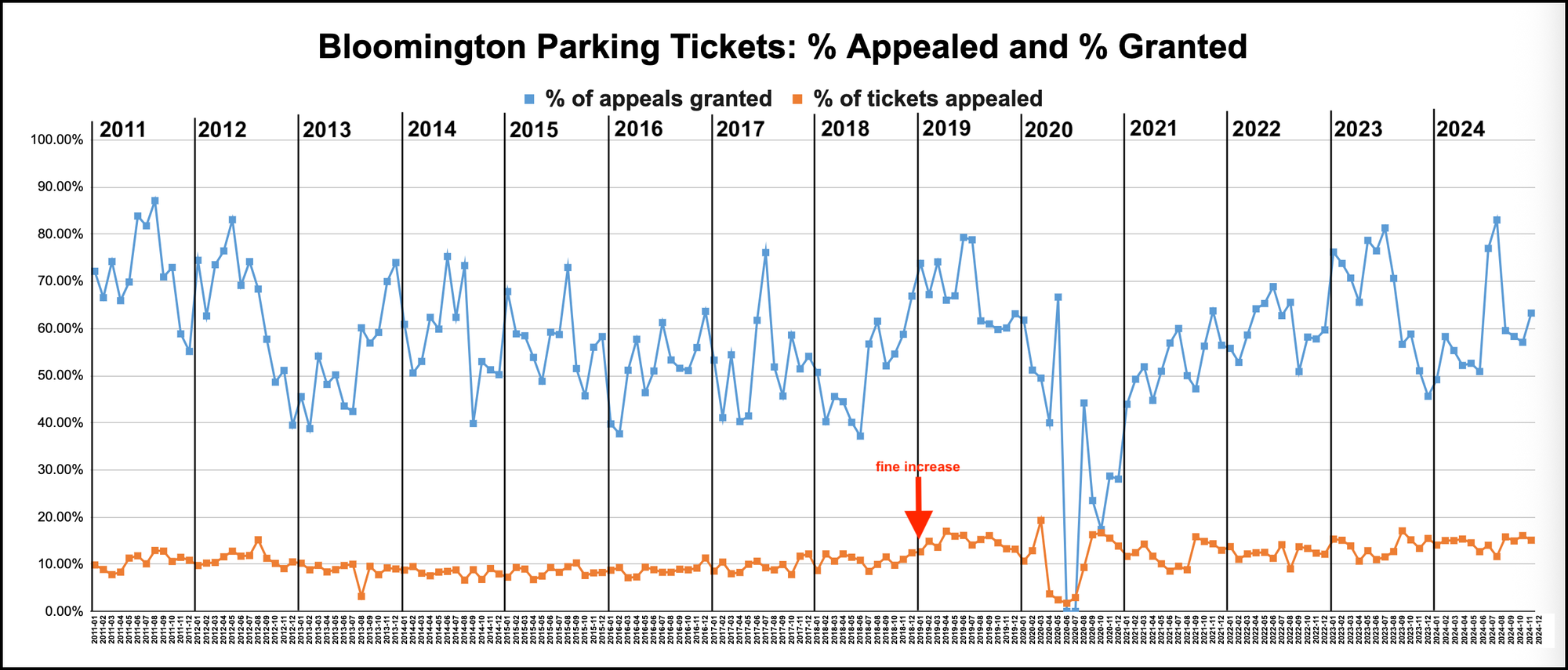

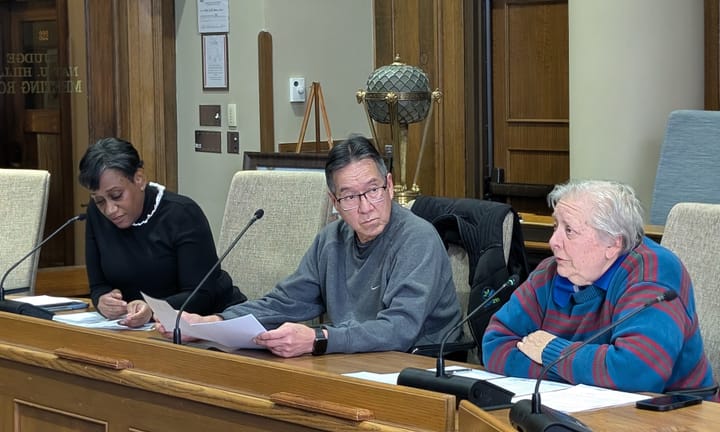
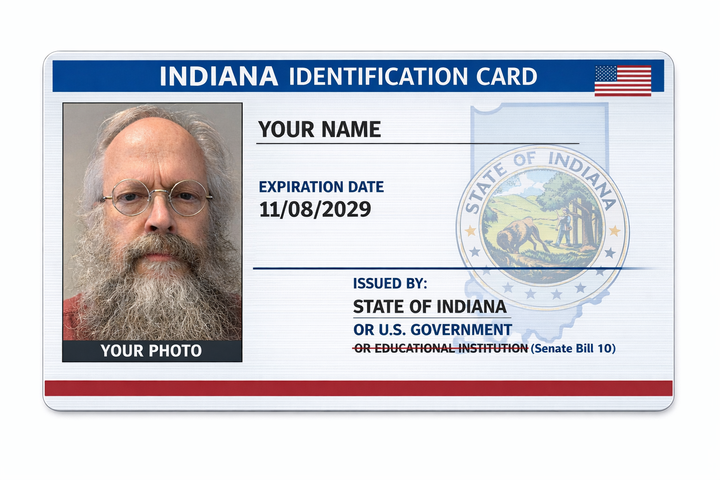
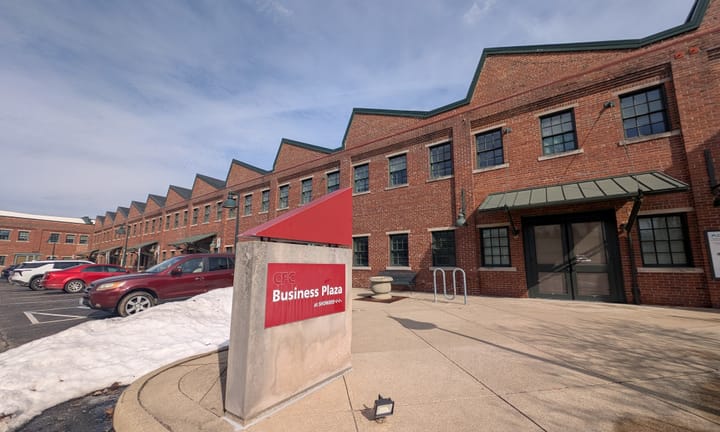
Comments ()